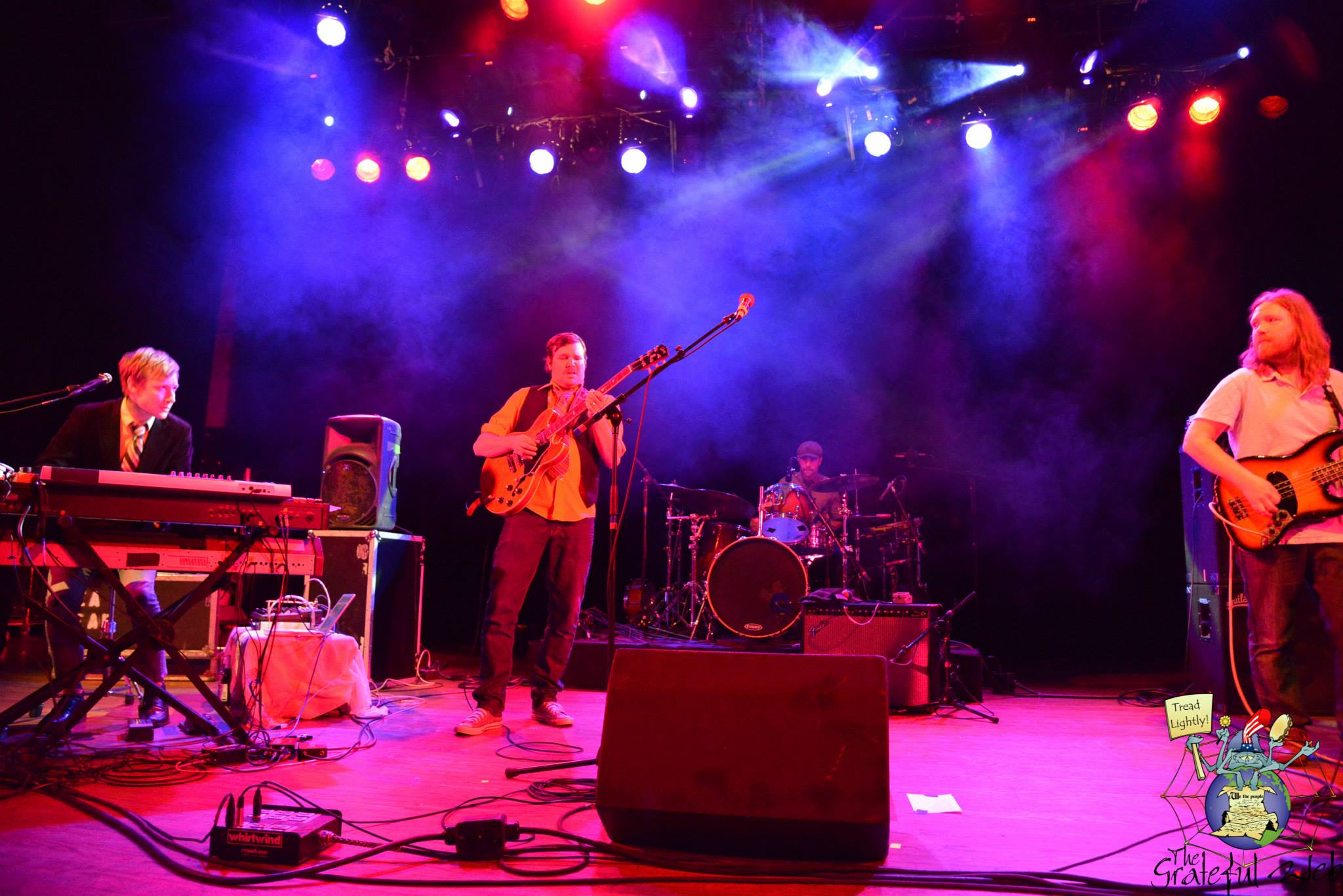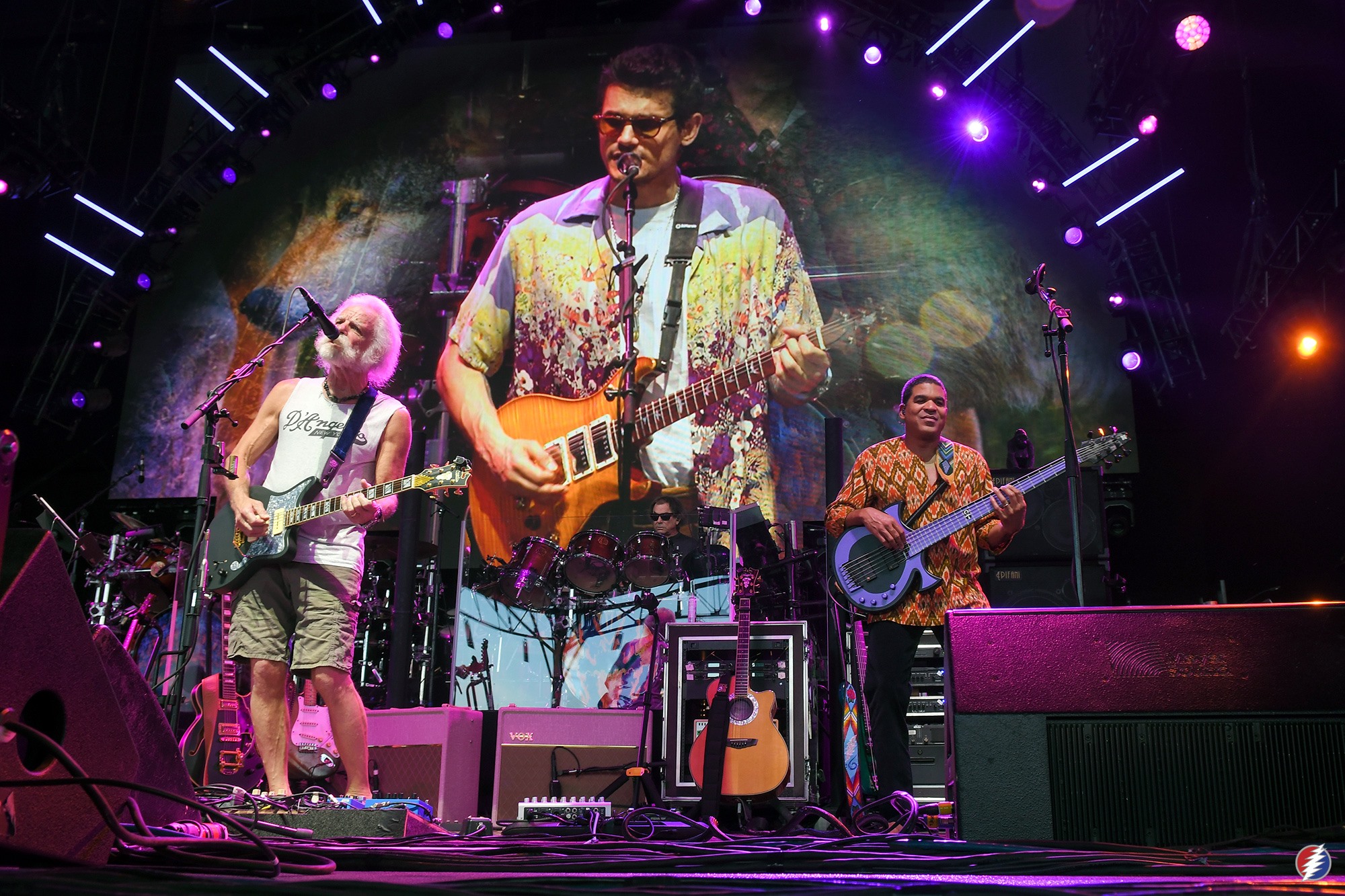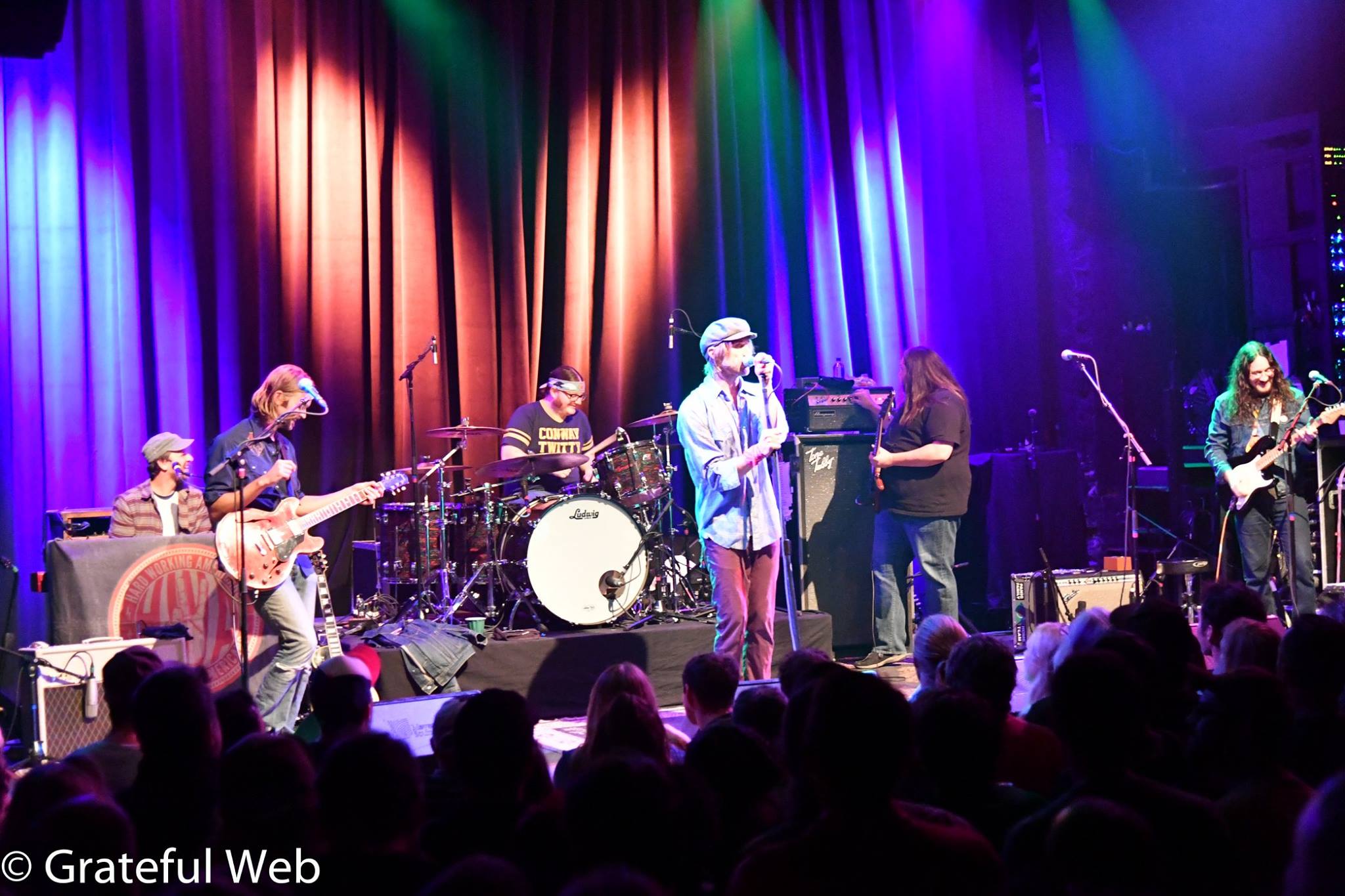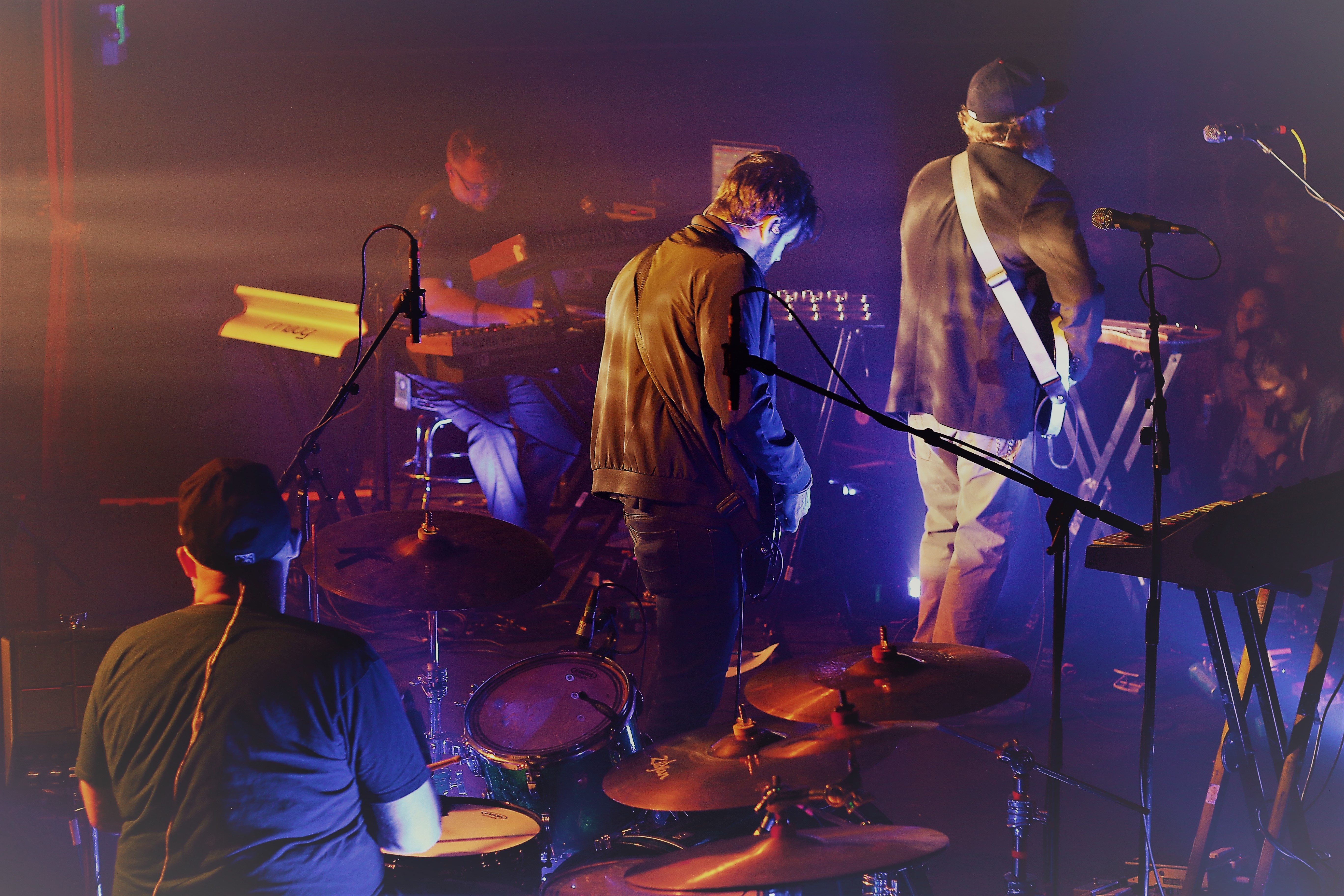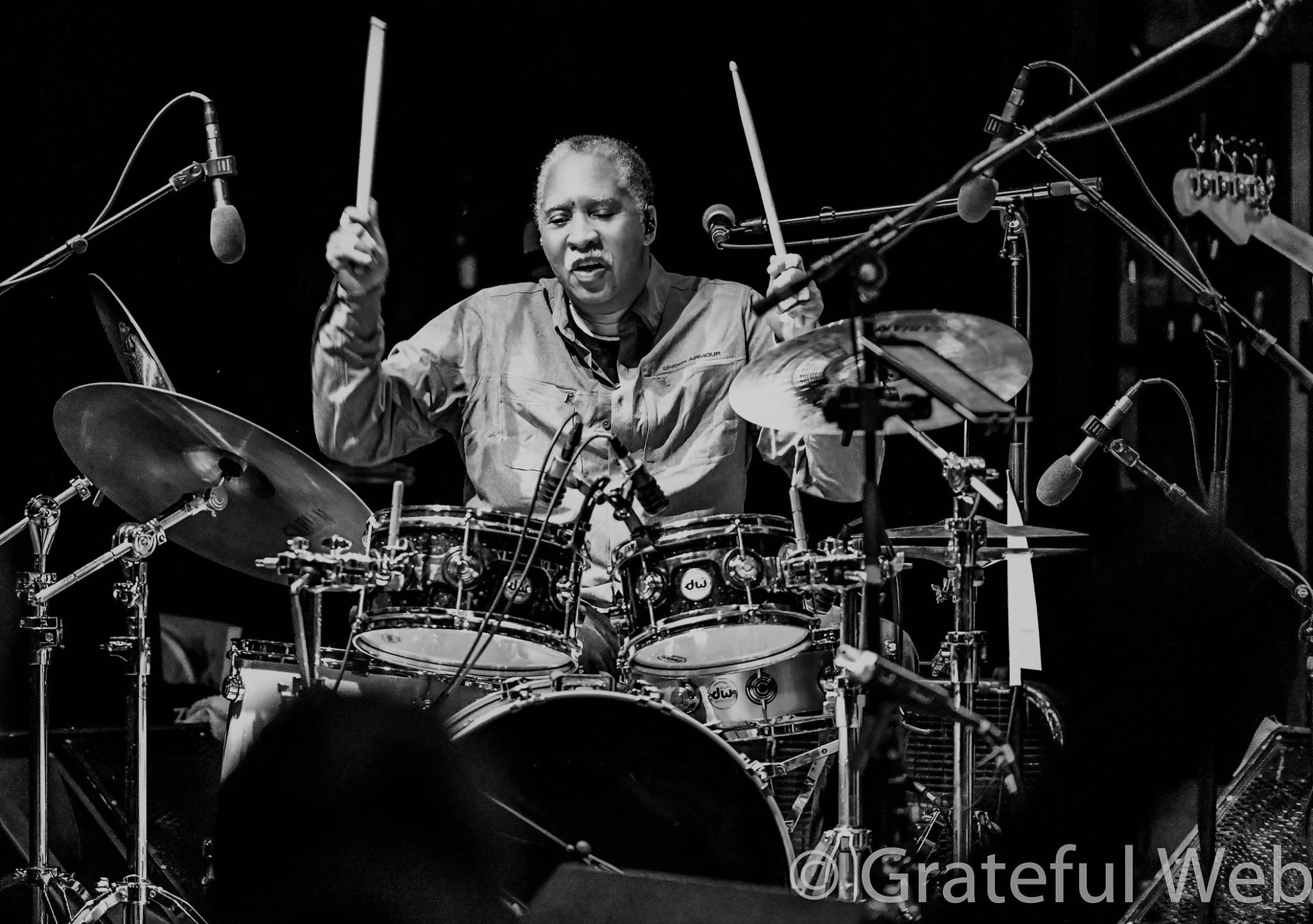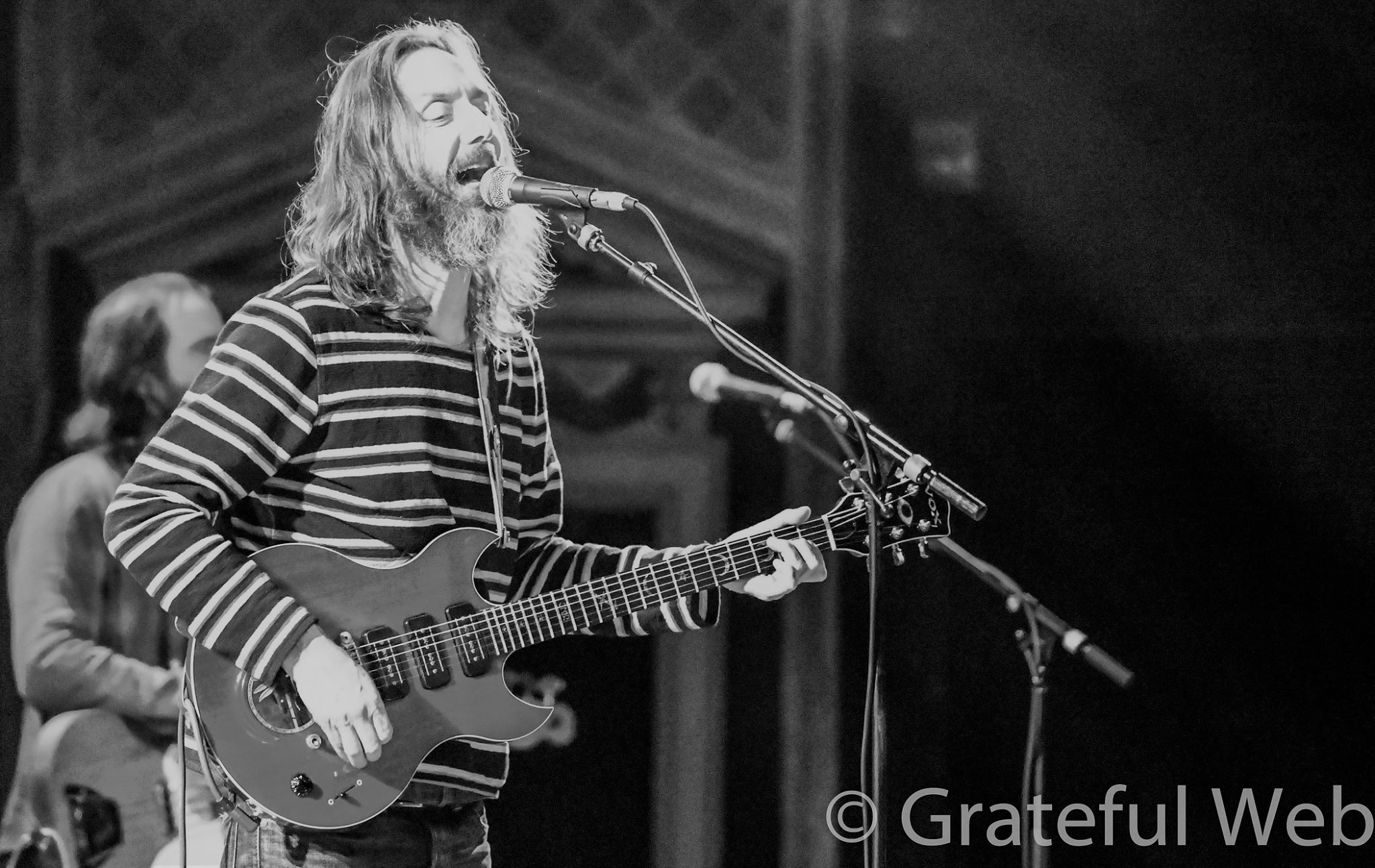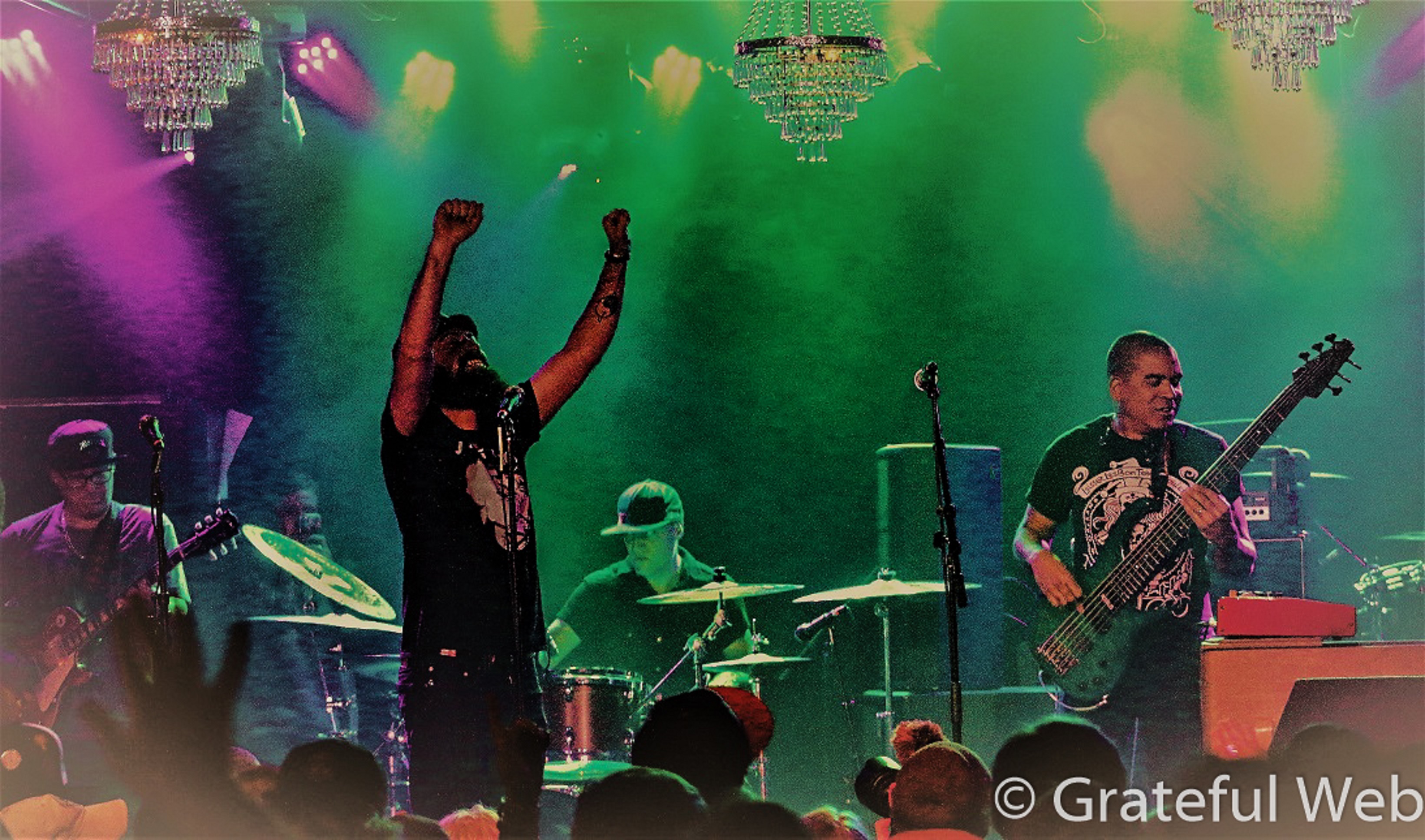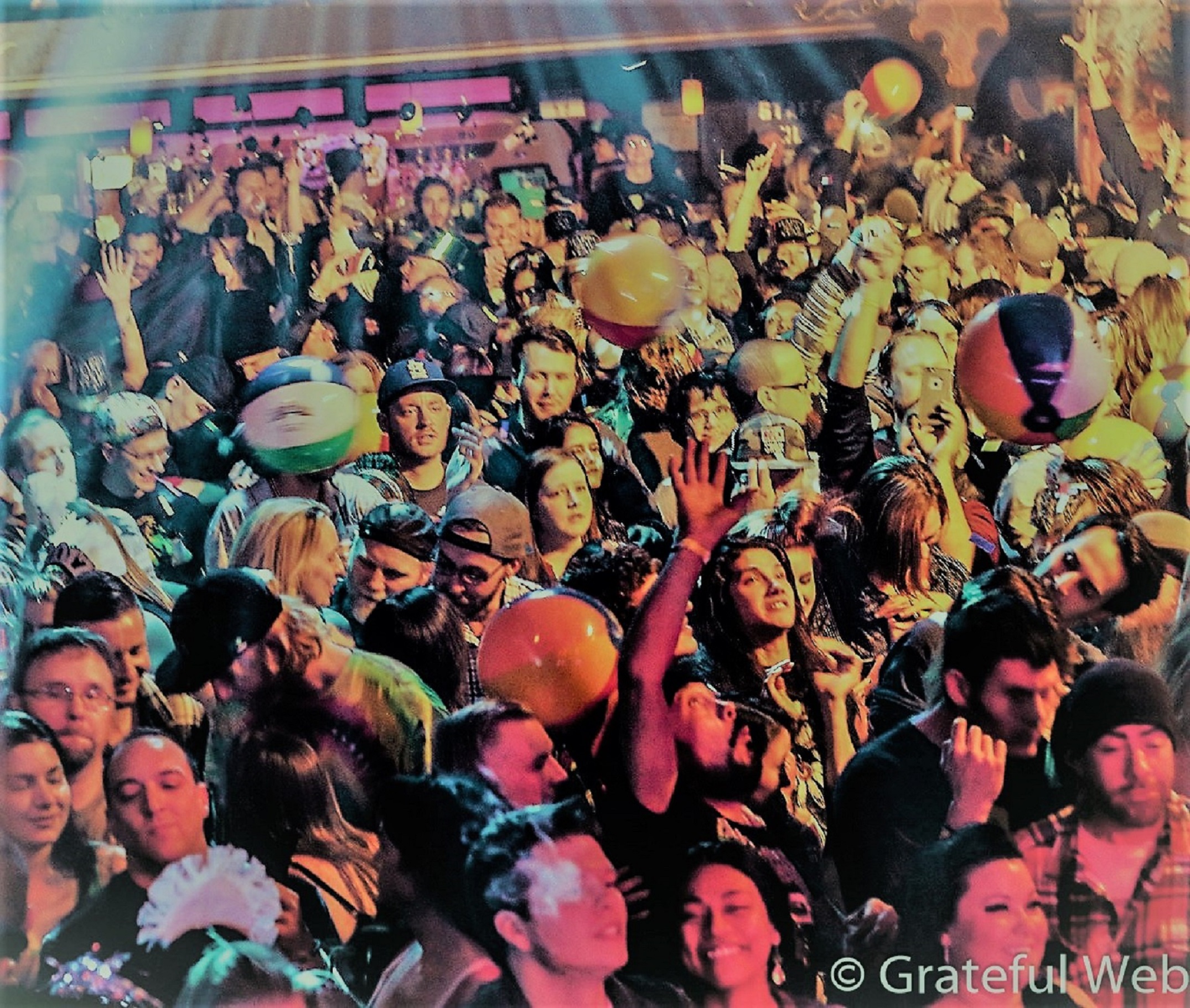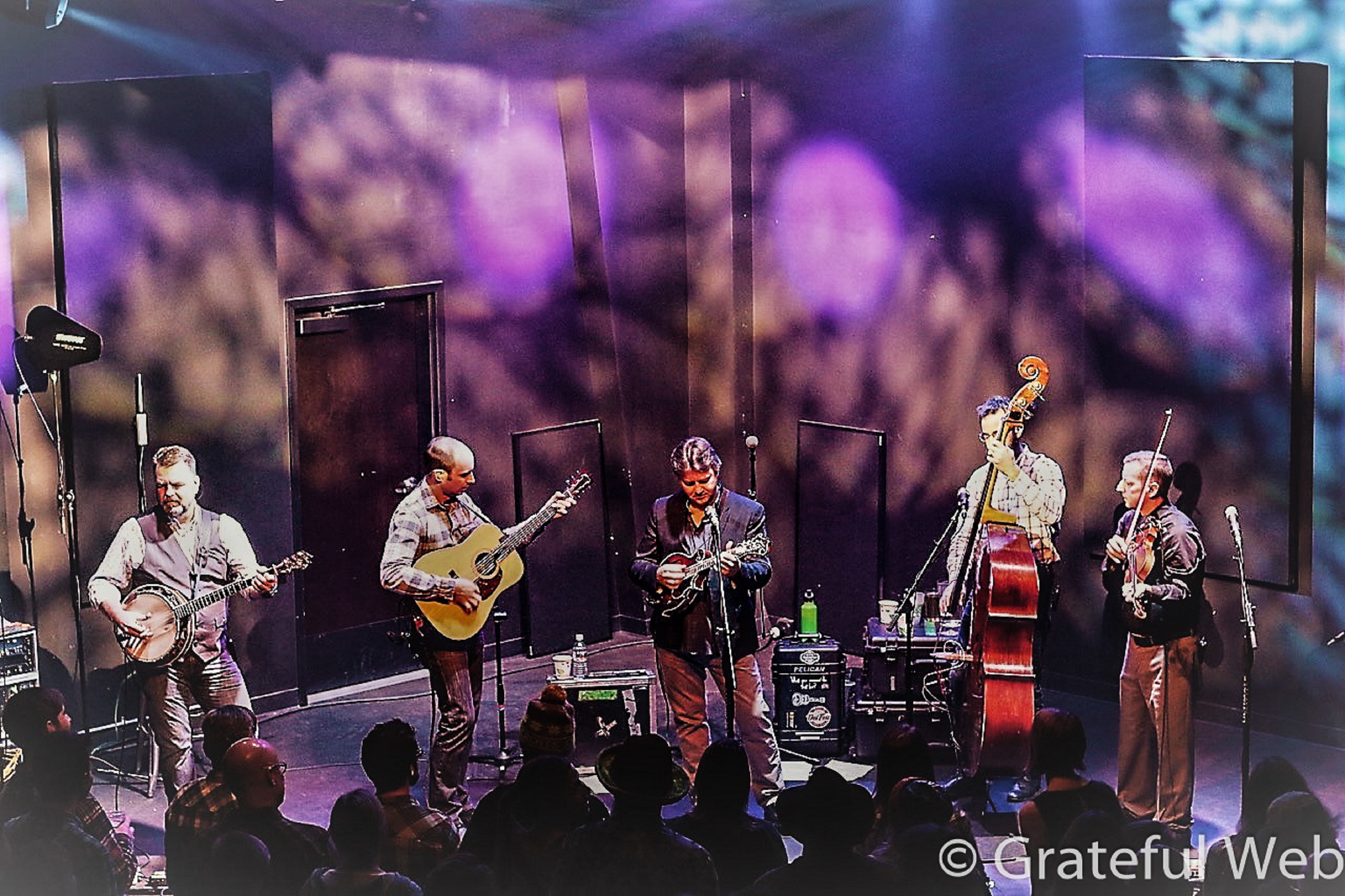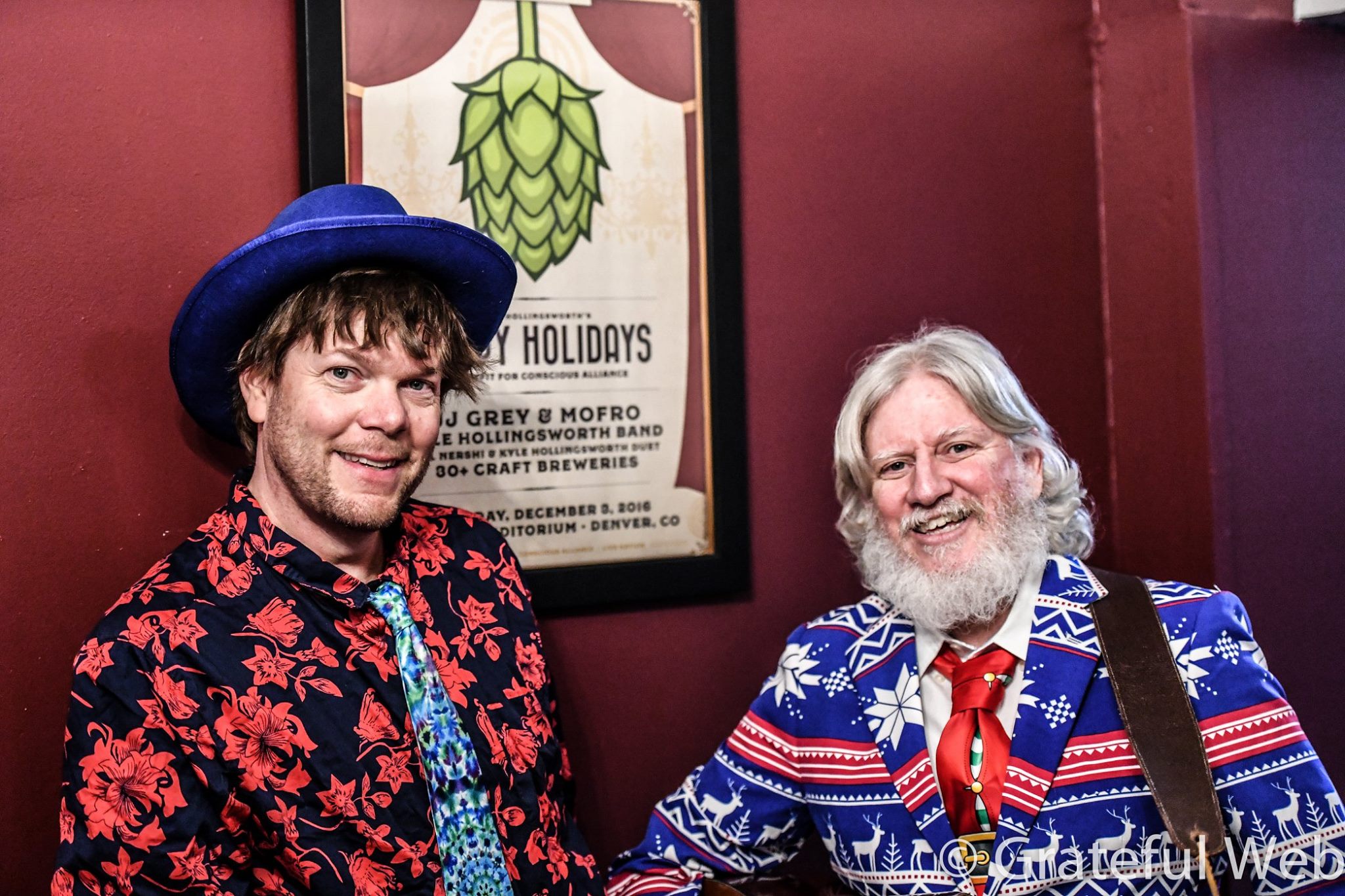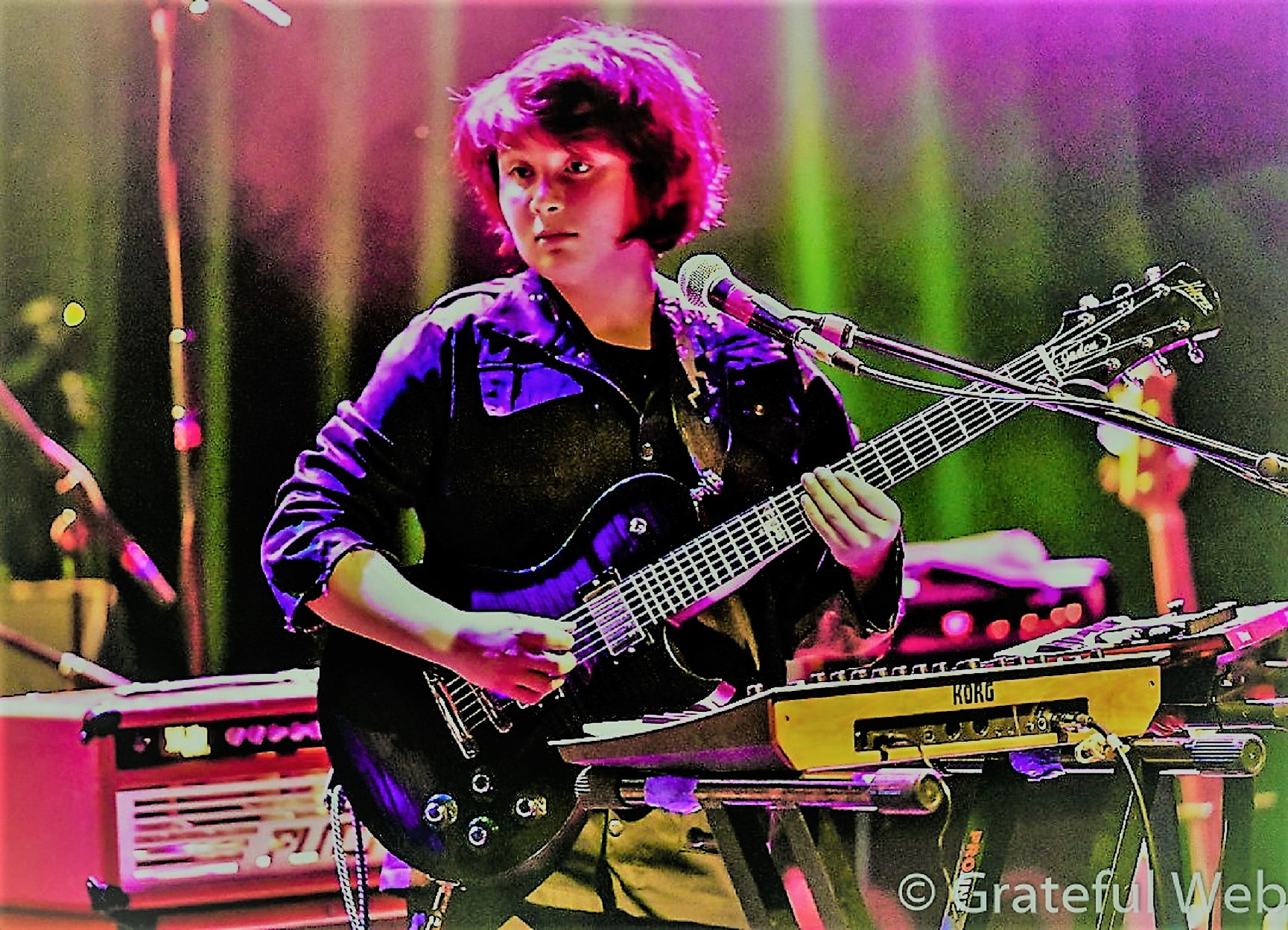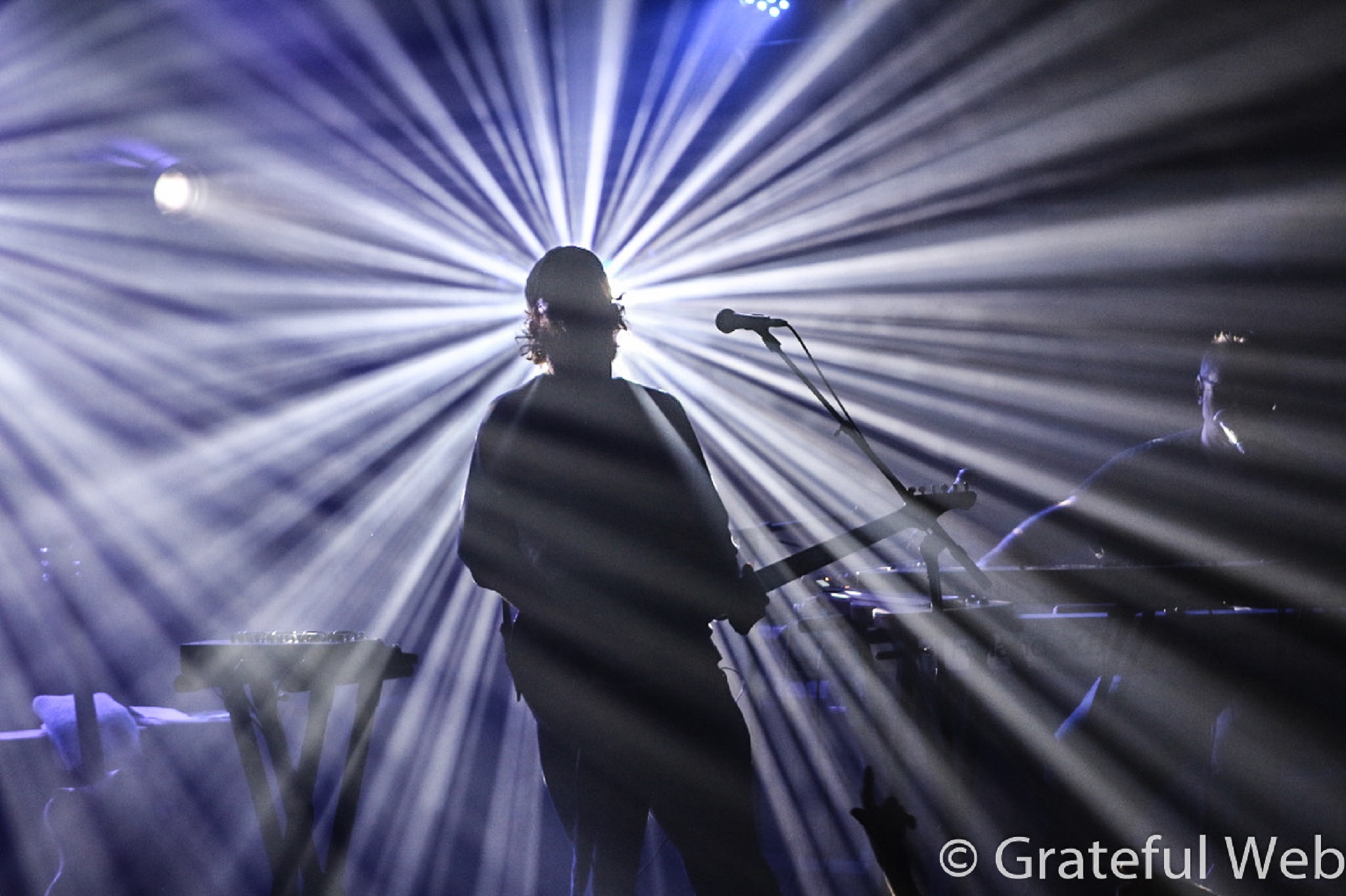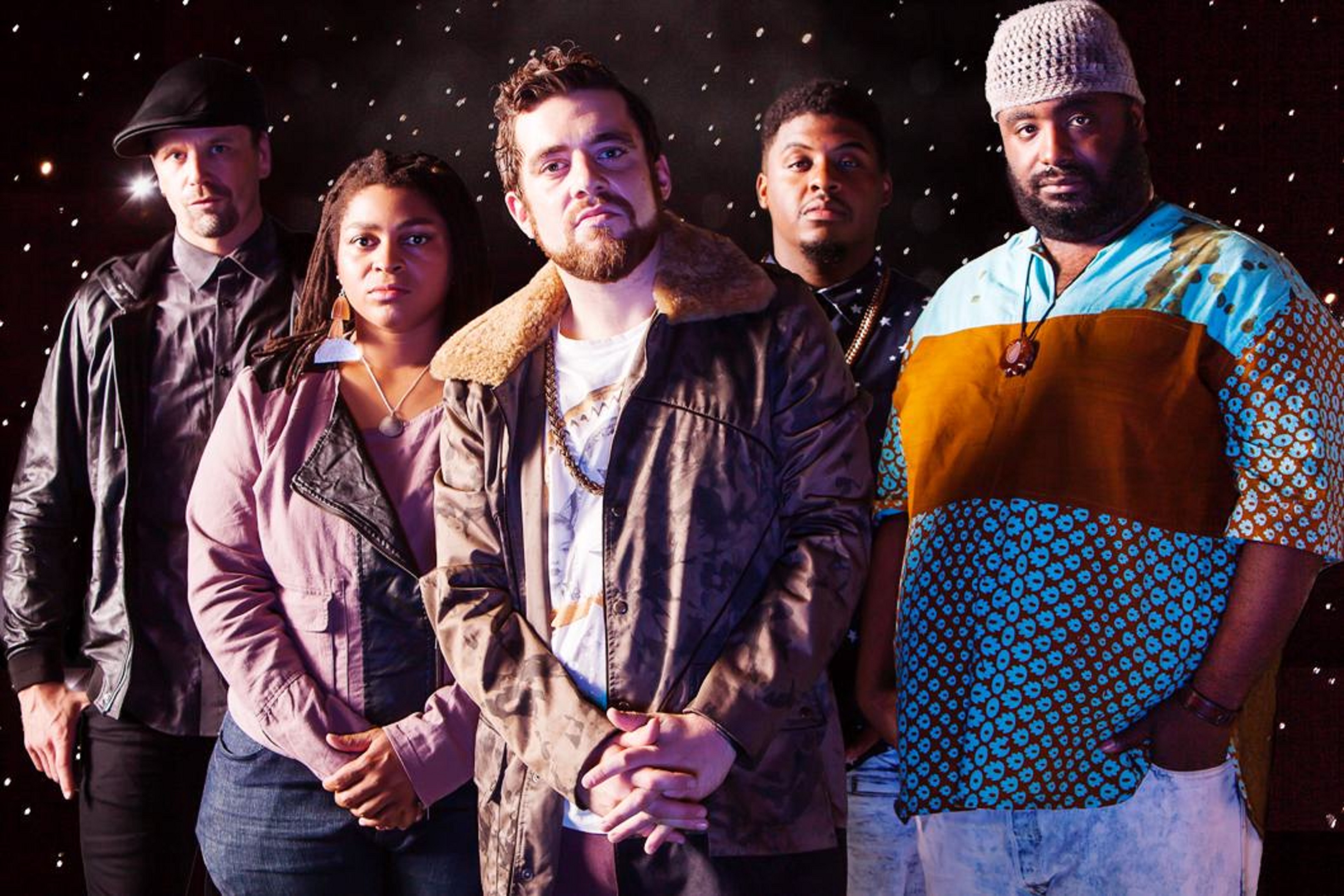Tea Leaf Green percussionist and Coyote Hearing Studio engineer Cochrane McMillan recently took time out of his hectic yet welcomed schedule to discuss the balance in his life between the studio he co-owns and his solidified stance in the San Francisco based jam band. The second release from The Coyote Hearing Sessions, The Sideshow, features Steve Adams of ALO and Jesse Lauter as co-producer. The concept behind the Coyote Sessions, as Cochrane explains, is that a new track will be released on the final Wednesday of each month in 2014. The Sideshow, as well as January’s Reaching Through the Void, can be streamed and downloaded from Tea Leaf Green’s website. No matter how busy and booked Cochrane may be, he always makes a point to get home to his young daughter. A music industry family man can be a tall order with so much time spent touring on the road, but with Tea Leaf Green and Coyote Hearing Studio rooted deeply in the Bay Area, Cochrane McMillan is finding ways to keep all of his ducks in a row, without straying too far from home.
Grateful Web: My name is John Schumm with the Grateful Web and joining me today is Cochrane McMillan, percussionist for Tea Leaf Green and part owner of Coyote Hearing Studio. How are you today, Cochrane, what’s new?
Cochrane McMillan: I’m well. I’m in Oakland at my house, and the weather is wonderful, so that’s good. What’s new? Well, what you said: I’m a part owner of Coyote (Hearing Studio) and a producer and engineer there. I’ve been doing that for about six years and been in Tea Leaf Green for about four years, and starting this year-last month we released a track on the 29th-and the last Wednesday of every month this year, we’re going to release a new studio track. So that’s new for me, and exciting. I’m excited to see where it goes, creatively and also just how it’s received. Doing that is going to be fun.
GW: Nice, sounds awesome. You joined Tea Leaf full time in 2011. How did you become associated with the guys and their music and what led to you being a full-time member of the band?
CM: Reed (Mathis) and I have known each other since 2002, so we were in the same circles work wise and with friends. Reed came in with Marco Benevento’s Trio, and I recorded them back in 09’ I think it was, or maybe ’08, and he wanted to bring Tea Leaf Green in after that, which he was playing with so it must have been 2009. So we tracked Looking West there, and I engineered it and helped guide the ship as far as the recording process, and I think Reed mixed it on headphones or something (laughter), he did a great job.
After that record, when it was coming out, they had the album release at Café Du Nord in San Francisco, and they called me that morning and said, ‘Scott (Rager) hurt his ankle and we need you to come play drums. You know the songs and you play drums.’ So it was a last ditch effort, the ‘we’ve got to call Cochrane.’ So I went and did that gig, and after that they said they had a gig that weekend in San Diego, and ‘can you come do that gig?’ So I did that gig, it was an Oyster Fest with a lot of people outside. It was a lot of fun actually. Two weeks later they were doing a gig in Marin (county) and I did that one. After that gig they had a whole summer tour, and then Scott went to the doctor and wasn’t going to be able to play a full drum kit until August. So I got a call from Trevor (Garrod ) and he was like, ‘so we’ve got this tour this summer, we were thinking about having you. You know, I’m kind of looking for a famous drummer, but if you can do it, we want to know.’ And I was like, well, I’m famous in my own mind (laughs). But honestly it was great. It worked out.
They had me do the whole tour, which was like a month. We had a fun time and it was like work, not just that it worked great musically or anything, and it did, but everything just clicked. And I have the studio, I have a lot of skills in live sound, studio sound, I have a background in that. I kind of privy myself as sort of ‘music is my life.’ That’s certainly my current in terms of pace, but I’m also super classical in terms of classic spoken forms and American music history and also classical music. It just worked, as a person I was ready to be in a band more fulltime because I have a daughter and had taken time off. And it just worked, spiritually, physically, emotionally, everything worked. Initially, problems always permeate (Laughs). But it’s a good group, a great group of people to be involved with.
GW: Before joining them (Tea Leaf Green), you said you did, and obviously still do, work at Coyote Hearing Studio. Had you been in any live touring bands previous to setting down roots in the studio?
CM: Yeah, I had. I went to music school in New York for two years, a drummer school out there after a couple years of fucking around. So I played a lot. I was also getting my ass beat at the New York school, which basically taught me how to practice. I toured with a band called Steel Train for awhile and played in a lot of bands both from where I was from in the south, and the east coast. And in the Bay Area, when I moved out here, I played a jazz gig, but I had a daughter who’s now seven so I couldn’t really tour. So that didn’t really work out at the time. I needed to not be on the road, so I wasn’t really pursuing it. I played in a rock band in San Francisco, a jazz gig-just local stuff. And I started to record in the studio. I went to two years of engineering school in San Francisco, but I had a lot of interest in that when I first started playing music, when I was younger. So I took that to another level and met Jeremy Black, who’s my studio partner, and we opened up Coyote like six years ago, Coyote Hearing Studio. I worked pretty hard there for two to three years. Now I tour a little more and work there a little less, but you know, that’s my spot.
GW: Speaking on how you work there (Coyote) a little less because of touring, are there any other projects that you guys are working on there outside of Tea Leaf?
CM: Yeah, that studio is booked pretty much everyday: a lot of Indie bands and local bands. We have a band from Chicago, and a lot of San Francisco bands. And also, me and Reed Mathis and Trevor Garrod have a trio and we made a covers record there and did a tour with Mickey Hart last year. And we made another covers record that we’re finishing up. I work with a lot of different people, that place is pretty busy. I’ll have a saxophone player, then a horn section, and then bring a band in and they’ll have to fly Jeremy (Black) in. So there’s a lot going on. My plate is mostly booked with the Trio or Tea Leaf Green just because I enjoy being home with my daughter. I love it. I have to do something musically everyday. And making a new song that we’re trying to make really good, I mean, I’m just super excited.
GW: The most recent Tea Leaf album came out last year, In The Wake, and that was recorded at the studio as well, right?
CM: Yeah, we did a year worth of work on that record at the studio with Jeremy Black producing, us and him. We really hunkered down and spent many, many days, a lot of time spent. It was a really great process. It was kind of painstaking and up and down, and it was one of the most artistic processes and creations I’ve ever been a part of, personally. We went to New York for a few days to finish it with Greg Calbi, who’s one of the most brilliant mastering engineers I know of. So it was a great process, and I’m really proud of what we did.
GW: It sounds awesome. I like that album. What was it like being on both sides of the album: the perspective of the artist playing in the band and being a producer and engineer at the studio?
CM: Well, it was really great having Jeremy (Black) involved, because I could just let him be Jeremy, the way he works in the studio. He works and I work, we don’t really work together. We have our own things going on. I like the way he works and I allow that, but I’m in there in the mornings and in the nights dealing with band management, my manager, and the studio’s management. It’s more of an executive producer role, not in terms of putting money up, but also scheduling and deciding when people come in. So it’s a lot of work, and I love it. If anybody knows anything about me, it’s that I need something to do. It’s how I operate, and I’m thirty-two and feel like I’m reaching my full potential. So I’m doing as much as I can.
GW: Hell yeah. Going back into the Coyote Hearing Sessions, starting this past January, Tea Leaf kicked off a launch of new songs where fans can download a new song for free on the last Wednesday of each month. Are all of these songs previously recorded or are they individual songs you’re working on month to month?
CM: So far, we have a lot of ideas. Basically, last month, Trevor started putting a song together and sharing it with me about mid-month, and we went into the studio one morning and did a couple of things. And then we literally had two nights before Wednesday, and all day Tuesday night and Wednesday morning. That’s what ended up happening because the studio was so booked after New Years. Moving forward, basically, I’m booking three to five days at the studio a month with the idea that we will be putting together something during that time every month. So it’s a mystery, it’s exciting. Everybody’s working with the idea where they’re going to write songs for it, and what kind of material. We might even re-work some old recordings that we haven’t released; we have a lot of stuff like that. But the idea is to put out a new track every month, and we don’t know what it’s going to be. Maybe we’ll put out two in one month or something; there are a lot of options.
GW: The one that you guys have put out is called Reaching Through the Void, and as far as I could tell, it didn’t seem like you rushed it at all (laughter). Good job on that.
CM: It’s a testament to working in the studio environment where it’s your job and you’re getting paid to do it for four plus years. I work well with a deadline. You know, there are things I’d change, but I think it turned out really good. I was really pleased.
GW: Looking at all of the work going on in the studio, whether it was last years release or the most recent song and songs coming out each month, it seems like there’s a rejuvenated dedication to collective songwriting taking place, and while I’m sure live shows and the improvisational jamming is obviously a part of the band and brand, there seems to be a lot going on in the studio. Are you guys trying to make a push towards that area?
CM: I think, for one, we have such a practical place. It’s opportunistic in terms of we have a fantastic studio that we are all comfortable playing in and if we can make the time work for the studio and for the band, we are going to do as much as possible, because that’s what we do. It certainly fits me, and it’s what I’m here doing; running a studio and playing in a band, so it makes since on that level. Also, we’re doing more weekends right now; we aren’t really on the road in a van for a bit. We decided not to do the winter tour this year, but we are doing shows. We’re working on the west coast a lot. We’ve got a Brooklyn Bowl weekend happening in May, some festivals and stuff like that. So we are home during the week and that leads us to create stuff at the studio. We’ve developed a process; everybody has their way of working there now, each individual, together. It could be two of us, it could be all of us, it could be Jeremy (Black) and one of us, it could be just me, it could be just Trevor, just Reed, you know, we are all working there, so it’s a really great opportunity for us who all like working together and playing together, to do it, to really see what comes of it. It seems very natural for our lifestyle and where we’re staged right now.
GW: It must be nice not having to jet set all over the country in the van for a little while.
CM: For a minute, exactly. I love being on the road and playing a lot of shows. By playing, and our playing together and being able to play music in front of people, is such a honor and so awesome, and it takes you to another place, which is so beautiful. But it’s also nice to be home.
GW: You mentioned the Brooklyn Bowl coming up in May, but coming up is another local gig for you guys, at Terrapin Crossroads, Phil Lesh’s venue. Have you played there before? Or have you had a chance to play with Phil during your career?
CM: We played the Grate Room last year; we did a night there. I played percussion with ALO in the Grate Room last year, and the Trio played in the bar last Saturday at Terrapin, and I played the Jay Blakesberg book release, with a lot of people at that gig. And since then I’ve gone up there and Ross James and Brian (Lesh) and Grahame (Lesh) and those guys are playing in the bar. So that scene is definitely something I’m loving witnessing and also being a part of whenever I can. I hope to get there a lot more. I’m super excited to be up there all weekend for two shows and a special show on Saturday during the day for an hour at four that’s going to be a little more stripped down kind of thing. Pretty fun, there’s a lot of music going on. It’s just a great vibe there.
GW: It seems like it’s working to bring together the entire community that’s fostered around the Bay Area.
CM: They’re doing it. It is cool to see. You know, Reed and I will get a text that says, ‘we’re playing, come on up and sit in,’ on a Tuesday night or whatever. So they are actively doing that. They’re reaching out to musicians in the bay and saying, ‘hey, come up, come hang out.’ It’s exactly the type of thing you want to see happening if you’re a musician, for sure.
GW: We are just a month or two into 2014, what are you looking forward to for the rest of the year besides the Coyote Hearing Sessions and some of those weekend dates?
CM: I’ve got this Trio record we are going to put out. It’s another record of covers and I love the vibe that we’ve got going on and the way it sounds, and it’s just the super honest songs and music we like playing. So I’m really excited to finish that in February and release it online for free download. I’m pumped up about that. We’ve been doing some Trio dates; I think we are going to go to Jazz Fest in the spring. So all of that is going to be pretty fun. I’m excited about that and obviously all of the things you mentioned before.
GW: When can we expect that Trio album to drop?
CM: I’m hoping March, and being conservative, you know? It’s not a money thing at all, and nobody else is involved. It’s just a matter of us getting it where we want to get it and finishing it. We’re mixing it right now, so whenever we finish that we’ll put it out as soon as possible.
GW: Cool, well I’m looking forward to hearing that. That wraps up what I have for you. I want to thank you for taking the time to speak with me on behalf of the fans and followers of Tea Leaf Green and the Grateful Web. Is there anything else you’d like to add?
CM: No, I think that’s great. Thanks for calling me up; I’m glad we got to talk.
GW: Absolutely, I appreciate you taking the time.
CM: No problem.





